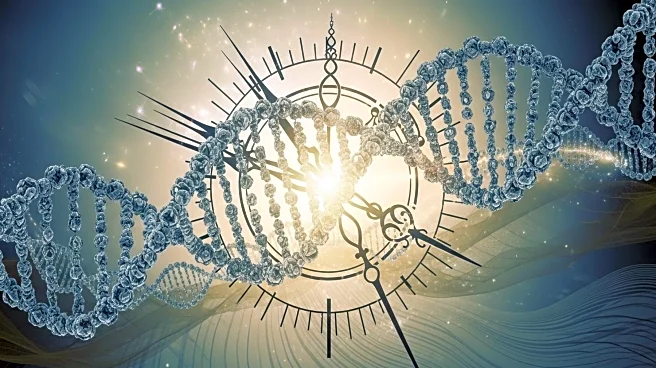What's Happening?
A recent study published in Nature explores the role of PBAF/cBAF reorganization on H3.3 chromatin in regulating BMAL1 activity, particularly in the absence of circadian negative feedback. The research utilized genetically modified mouse models, including heterozygous FLAG-FLAG-HA-tag (FH) - H3.3A+/- and knock-out lines, to investigate chromatin remodeling and its impact on circadian rhythms. The study involved complex procedures such as native purification of H3.3A protein complexes and mass spectrometry analysis to understand the molecular interactions. The findings suggest that chromatin remodeling plays a crucial role in circadian regulation, offering insights into the genetic and molecular mechanisms underlying circadian rhythms.
Why It's Important?
Understanding the molecular mechanisms of circadian regulation is vital for various fields, including medicine and biology. Circadian rhythms influence numerous physiological processes, and disruptions can lead to health issues such as sleep disorders and metabolic diseases. The study's insights into chromatin remodeling and its impact on circadian regulation could pave the way for new therapeutic approaches to manage circadian-related disorders. Additionally, the research highlights the importance of genetic and molecular studies in advancing our knowledge of biological processes, potentially leading to innovations in genetic engineering and personalized medicine.
What's Next?
Future research may focus on further elucidating the molecular pathways involved in circadian regulation and exploring potential applications in medical treatments. The study's findings could lead to the development of targeted therapies for circadian-related disorders, improving patient outcomes. Researchers may also investigate the broader implications of chromatin remodeling in other biological processes, potentially uncovering new areas of study in genetics and molecular biology.
Beyond the Headlines
The study raises ethical considerations regarding genetic modifications and their applications in medicine. As research advances, discussions around the ethical implications of genetic engineering and its impact on human health and society will become increasingly important. Additionally, the study's findings may influence cultural perceptions of sleep and circadian rhythms, highlighting the significance of maintaining healthy sleep patterns for overall well-being.










